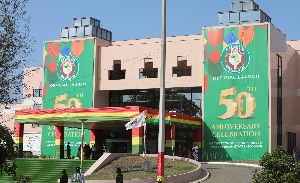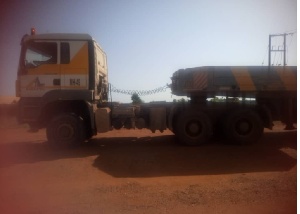Africa News of Thursday, 24 April 2025
Source: www.ghanawebbers.com
West African Group Ecowas Turns 50 Amid Struggle to Stay United
Celebrations for the 50th anniversary of the Economic Community of West African States (Ecowas) began in Ghana this week. However, the mood is not celebratory. The organization faces significant challenges after losing three key members: Mali, Burkina Faso, and Niger. These countries left Ecowas in January, adding to existing security and economic issues.
Ecowas was established on May 28, 1975, in Lagos. Its goal was to unite West African nations. Now, that ambition is under severe strain. The anniversary events will continue throughout the year across all member states. Yet leaders are concerned about how to maintain unity amid rising threats.
Ecowas has adapted before. In 1990, it created a peacekeeping force during Liberia's civil war. It later expanded its mission to include security and democracy promotion. However, violent extremist groups have overwhelmed these efforts.
Amandine Gnanguénon from the Africa Policy Research Institute stated that Ecowas was unprepared for such challenges. She noted that it struggled to manage multiple priorities effectively and lost control over its agenda.
As Ecowas faltered, other groups like the G5 Sahel emerged to fill gaps. The recent exit of Mali, Burkina Faso, and Niger—who formed their own group in September—has further weakened Ecowas.
Experts believe deep reforms are essential for Ecowas' survival. Gnanguénon emphasized a return to stronger economic and political integration is needed. She also highlighted a communication gap; many people are unaware of what Ecowas does.
Real change requires action from West African leaders at the conference of presidents—not just from Ecowas officials.
Despite its struggles, Ecowas has achieved some successes. It has made cross-border work and travel easier for citizens. Senegalese researcher Pape Ibrahima Kane praised the Ecowas identity card that allows work without a residence permit.
He also noted a regional tax aligning customs duties as another achievement. However, many larger goals remain unmet; only one major transport corridor exists between Abidjan and Lagos. Regional trade is still below 15 percent of total exports.
Plans for a single currency have been repeatedly delayed due to Nigeria's internal issues affecting its leadership role.
For traders in Côte d'Ivoire, the split with former members poses real problems. At Abidjan's Adjamé market, vendors express growing anxiety about their businesses.
Adama imports traditional bogolan fabric from Burkina Faso to sell in Abidjan. He worries about his ability to travel freely between countries for trade.
"We need both countries to get along," he said. "That would make us happy."











